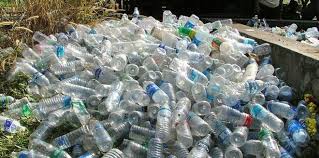
In News
Scientists from IIT Madras found a way to degrade plastics in an eco-friendly way.
In-Detail
- Intrigued by their research of sliver getting dissolved in glucose water at 70 degree C three years ago, the team of scientists from IIT Madras has now demonstrated that Teflon which is made of the plastic fluoropolymer — polytetrafluoroethylene (PTFE), is degradable using glucose.
- The plastic polymer in Teflon is chemically inert and physically stable.
- The research team observed that fluoropolymer gets degraded into molecules when placed in continuously stirring water containing 1000ppm of glucose and metal ions and at 70 degrees C temperature for 15 days.
- Using the same strategy, the team degraded polypropylene too.
The Research
- The team used a magnetic stirrer coated with Teflon and continuously stirred it in a beaker with water containing glucose and covered in good foil.
- After a few days, they observed fragments of bright red luminescence floating on the water.
- In their earlier research, they found that glucose corrodes gold and red particles are released.
- Besides gold, they also found other tiny particles which they initially thought of as impurities of Teflon, but they are fluorocarbon polymer.
- Excited, they further tested Teflon in various forms – plates, tapes, and pellets.
- They used a Teflon beaker and the result is the same with the only difference being various metals – copper, iron, and silver were used – did not show the bring red luminescence that gold particles produced.
Triboelectric Degradation
- From the results, the research team concluded that the PTFE is undergoing triboelectric degradation that is an electric potential is produced at the interface of teflon and water while stirring.
- Glucose in water first leaches out the metal ions.
- While continuously rotating the PTFE-coated magnetic pellet, triboelectric charges are generated on the pellet. PTFE gets negatively charged.
- This then gets attracted to the positive charge of metal ions that have already been leached out.
- The resulting metal-polymer bonds will destabilise the carbon-carbon of PTFE and gets degraded into molecules.
- Researchers have noticed that there is no degradation in the absence of stirring, glucose or metal ions. Also, the rate of degradation gets reduced at room temperature.
- The increase in degradation is dependent on the amount of glucose dissolved in water. More glucose leads to more metal ions getting leached further accelerating the degradation of PTFE.
- The process has also been tested on polyethylene terephthalate (PET) and got similar results.
- Researchers also point that the same chemical mechanism may lead to leaching of micro and nano plastic in food particles cooked in Teflon coated vessels.
Conclusion
PET is one of the most widely used plastics in the world. The research from IIT Madras team paves a way to degrade this plastic and avoid a potential catastrophe. The researchers also note that the process of degradation in their experiments might be true in nature as well. Oceans with constant agitation of water may be the reason behind generation of micro plastics in them.

Leave a Reply
You must be logged in to post a comment.